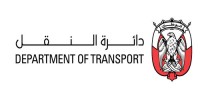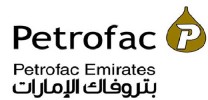
Financial Risk Management
Course Introduction:
Exposure to changes in interest rate, currency, equity and commodity markets is a fact of life but effectively measuring and managing those risks can mean the difference between profitability and loss. Selecting the product and risk hedging strategy that makes sense for a particular company and situation requires care and a solid understanding of the financial instrument tools and applications available in the market.
Expert-facilitated program is uniquely designed to help treasury professionals build competency-based skills for identifying, measuring and managing financial risk exposure.
The format combines presentations, case studies and application-focused checklists to cover risk analysis from assessment to evaluation, and will bridge the gap between theories and practice with:
- an initial overview of fundamental concepts and tools used to manage exposure to changes in interest rate, currency, equity and commodity markets
- discussions on ways to measure the risk-return tradeoff of popular financial instruments and related applications with respect to economic, operational and structural attributes
- a focus on practical implementation issues such as data selection, valuation and hedge effectiveness testing
Course Objectives:
Participants will learn to:
- identify effective financial instruments used for managing risk from interest rate, currency, equity and commodity changes
- recognize effective risk management processes and procedures for using financial instruments
- measure the risk-return tradeoff of popular financial instruments and related
- applications with respect to economic, operational and structural attributes
- deal with practical implementation issues such as data selection, valuation
- hedge effectiveness testing
Who Should Attend?
- Managers.
- Financial Consultants
- Financial Advisors.
- Securities Specialists.
- Accountants.
- Currency Derivatives Specialists.
- Management Accountants.
- Venture Capitalists.
- Corporate Executives.
Course Outline:
Risk: A Working Hypothesis
- Defining Risk – Generally.
- Financial Risk: A Plausible Definition.
- Financial Risk in an Organisational Setting.
- Financial Risk and ‘Market Dynamics.’
- Liquidity Risk.
- Operating Risk.
- Fraud Risk.
- Settlement Risk.
- Corporate Strategy and Risk Management.
- The Currency Derivatives Market.
Financial Risk and Unpredictability: Uncontrollable Environmental Issues
- Asset Behaviour and Pricing Implications.
- Credit and Counterparty Risk.
- The Legal and Political Risk Environments.
- Risk as an Economic Factor.
- Technological Risk Factor.
- Risk associated with Socio-Cultural Change.
Financial Risk Settings: A Meta-Analytical Exploration
- Risk in Financial Institutions.
- Banking Risk.
- Risk and the Currency Market.
- Risk and the Equity Market.
- Futures Market Risk.
Financial Exposure as Risk
- Economic Exposure.
- Transaction Exposure.
- Translation Exposure.
- Calculating Risk in Financial Exposure.
Risk Management: A Conceptual and Statistical Meta-Analysis
- Conducting A Risk Assessment.
- Managing Risk with Forward Contracts.
- Financial methods of measuring Risk.
- Quantifying financial risks.
- Some Qualitative Approaches to Financial Risk Assessment.
- Managing the Interest Rate Derivatives Market.
- Managing equity risk.
- Identifying and measuring Currency Risk.
- Managing Financial Exposure Risk.
- Managing currency Risk.
- Sensitivity Analysis As Risk Management.
- Managing Risk with SWAPS.
- Statistical Analysis as a Risk Management Instrument.
- Interpreting Statistical Data.
- Mean and Statistical Mean.
- Variance and Standard Deviation.
- Probability and Normal Distribution.
- Degrees of Confidence.
- Correlation and auto-correlation.
- Calculating statistics from actual data.
- Understanding Statistical Significance.
- Making Sense of Chi-squared Distribution.
- Using Software to analyze data.
- Using PESTEL as a Tool to Risk Management.
Course Methodology:
A variety of methodologies will be used during the course that includes:
· (30%) Based on Case Studies
· (30%) Techniques
· (30%) Role Play
· (10%) Concepts
· Pre-test and Post-test
· Variety of Learning Methods
· Lectures
· Case Studies and Self Questionaires
· Group Work
· Discussion
· Presentation
Course Fees:
This rate includes participant’s manual, Hand-Outs, buffet lunch, coffee/tea on arrival, morning & afternoon of each day.
Course Timings:
Daily Course Timings:
08:00 - 08:20 Morning Coffee / Tea
08:20 - 10:00 First Session
10:00 - 10:20 Coffee / Tea / Snacks
10:20 - 12:20 Second Session
12:20 - 13:30 Lunch Break & Prayer Break
13:30 - 15:00 Last Session





.jpg)






















































































































